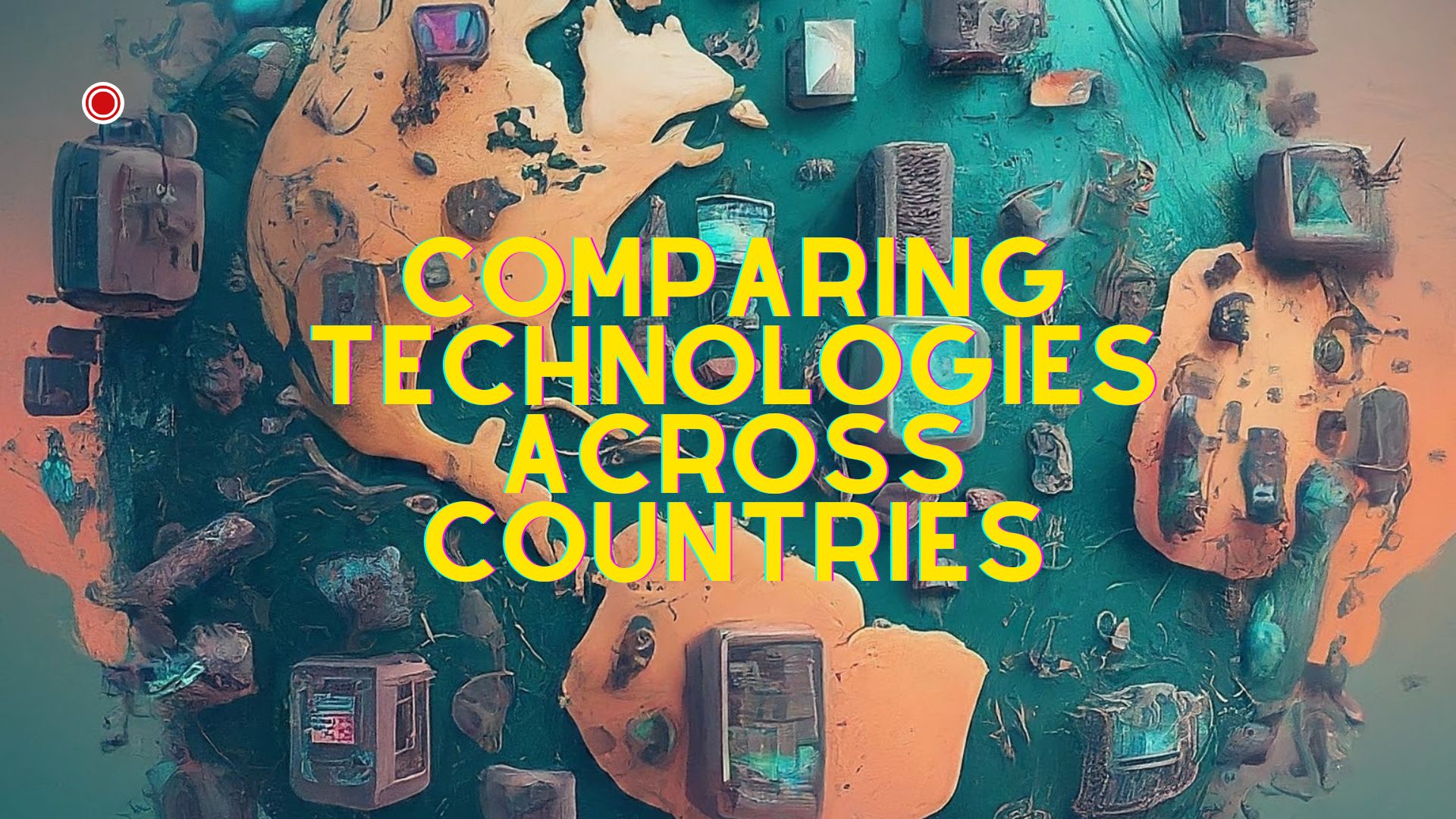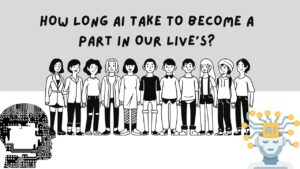Comparing Technologies Across Countries-From bustling metropolises to serene rural landscapes, technology weaves its magic across the globe, shaping lives and transforming societies. But how does the tech landscape differ from country to country? Buckle up, tech enthusiasts, as we embark on a virtual journey, exploring fascinating comparisons and unique innovations across diverse nations.

East vs. West: A Tale of Two Titans
United States:
The land of Silicon Valley giants like Google and Apple, the US boasts a vibrant tech ecosystem fueled by venture capital and innovation hubs. AI, cloud computing, and cybersecurity are top priorities, reflected in the country’s leading-edge research and development (R&D) spending. However, concerns exist regarding digital divide and data privacy, highlighting the need for inclusive and ethical progress.
China:
A formidable challenger, China emerges as a powerhouse in mobile technology and e-commerce. Its homegrown giants like Alibaba and Tencent hold global sway, while government-backed initiatives in AI and quantum computing aim to push the boundaries of science. However, intellectual property concerns and internet censorship remain points of contention.
Beyond the Binary: Regional Gems Shine
South Korea:
More than just K-pop, South Korea boasts the fastest internet speeds in the world, fostering a mobile-first culture. Its leadership in semiconductor manufacturing and smart cities initiatives is undeniable. However, work-life balance and gender equality issues in the tech sector require attention.

Japan:
Robotics, advanced materials, and high-precision engineering define Japan’s technological prowess. Its commitment to sustainability is evident in green tech advancements. However, an aging population and digital literacy gaps pose challenges to future growth.
Europe:
A diverse tapestry of innovation, Europe excels in sectors like renewable energy, automotive technology, and healthcare. Its strong regulatory framework emphasizes data protection and consumer rights. However, fragmentation within the EU can hinder seamless tech adoption and collaboration.
Africa: A Continent on the Rise
Africa’s tech scene is exploding, driven by mobile money solutions, leapfrogging technologies, and a youthful, tech-savvy population. Innovation hubs like Nairobi and Lagos are nurturing startups tackling local challenges in agriculture, healthcare, and education. However, infrastructure limitations and access to funding remain hurdles.

Latin America: Bridging the Gap
From Argentina’s fintech boom to Brazil’s biofuel advancements, Latin America is carving its niche in the tech sphere. However, economic instability and social inequality hinder widespread adoption and inclusive development.
Beyond the Rankings: A Spectrum of Innovation
While rankings offer a glimpse, true innovation transcends borders and metrics. Here are some key takeaways:
- Focus on local needs: Countries are tailoring technologies to address specific challenges, like India’s digital identity platform Aadhaar or Kenya’s M-Pesa mobile money service.
- Collaboration is key: Global partnerships are accelerating progress, fostering knowledge sharing and joint ventures.
- Ethical considerations: The responsible development and deployment of technology are crucial, addressing bias, privacy, and environmental concerns.
The Future: A Collaborative Canvas

As technology continues its relentless march, collaboration and knowledge exchange will be key to shared prosperity. By recognizing the unique strengths and addressing the challenges of diverse nations, we can ensure that technology serves as a bridge, not a barrier, on our global journey towards a brighter future.
let’s delve into specific regional innovations and emerging trends:
Southeast Asia:
This region is a hotbed for e-commerce and digital payments, spearheaded by players like Grab and Gojek. Additionally, Vietnam’s AI advancements and Indonesia’s focus on digital literacy hold immense potential.
Middle East:
While oil dominates the economy, countries like the UAE and Saudi Arabia are investing heavily in smart cities, fintech, and renewable energy. Blockchain technology is also gaining traction in the region.
Emerging Trends:
- Quantum Computing: The race to achieve quantum supremacy is on, with countries like China, the US, and Germany leading the charge. This technology holds immense potential for cryptography, materials science, and drug discovery.
- Biotechnology: From gene editing to personalized medicine, biotechnologies are blurring the lines between science and fiction. Ethical considerations and responsible development are paramount in this rapidly evolving field.
- Artificial Intelligence (AI): AI is permeating every sector, from facial recognition to autonomous vehicles. Ensuring fairness, transparency, and responsible use of AI remains a crucial challenge.
- Internet of Things (IoT): Connecting everyday objects to the internet opens up exciting possibilities for smart homes, cities, and industries. Security and privacy concerns need to be addressed for widespread adoption.
The Human Element: Bridging the Divide

Technology is a powerful tool, but its impact hinges on human factors. Here’s how we can bridge the divide:
- Digital education: Equipping everyone with the skills to thrive in the digital age is crucial. Initiatives like coding bootcamps and affordable internet access are essential.
- Bridging the gender gap: Encouraging women in STEM fields and addressing unconscious bias are key to unlocking human potential and fostering diverse perspectives in innovation.
- Addressing ethical concerns: Open dialogue and collaboration are needed to develop ethical frameworks for AI, data privacy, and emerging technologies.

The Road Ahead: A Collective Journey
Technology is reshaping our world at an unprecedented pace. By appreciating the diversity of innovation, fostering collaboration, and addressing ethical concerns, we can ensure that technology serves as a force for good, uplifting lives and bridging divides across the globe.









